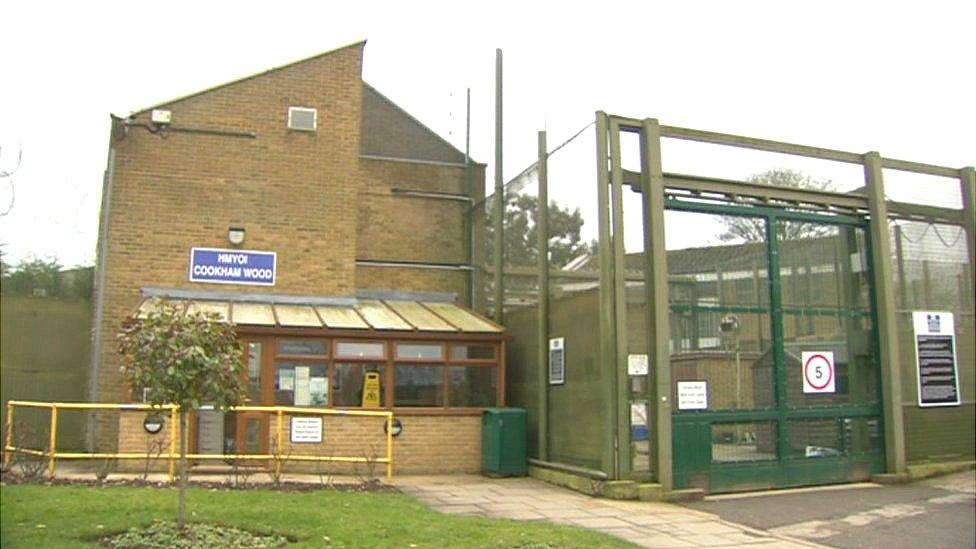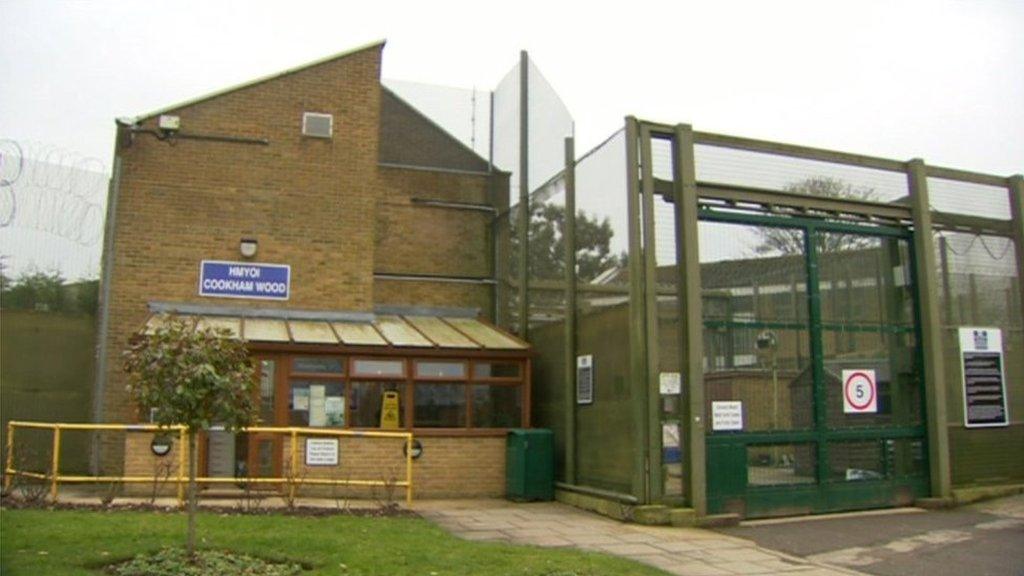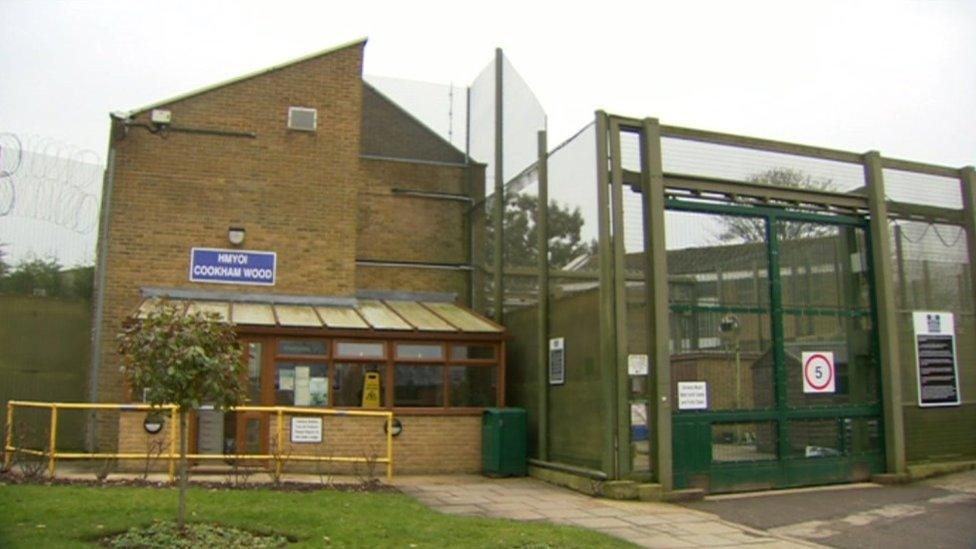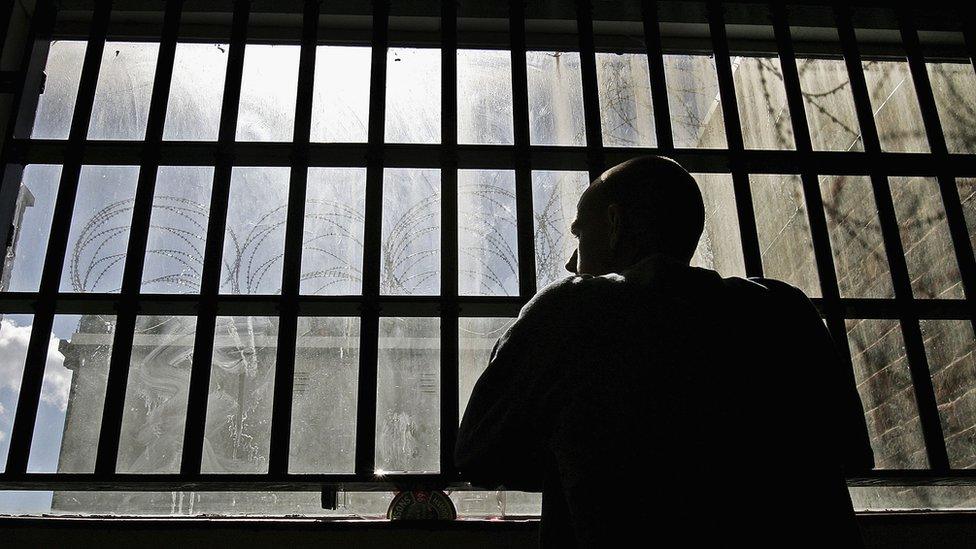Coronavirus: Young offenders out of cells for 40 minutes a day
- Published

Children at Cookham Wood in Kent have been in their cells for more than 23 hours a day
Children at a young offenders institution have been let out of their cells for only 40 minutes a day due to coronavirus, a report has revealed.
The new restrictions at Cookham Wood, in Rochester in Kent, were uncovered on a visit by prison inspectors.
In contrast, young offenders at Parc, in south Wales, were unlocked for three hours each day.
While a reduction in time unlocked was "inevitable" the differences between sites was a "concern," inspectors said.
"It is hard to see the justification for why such different approaches had been taken," said chief inspector Peter Clarke.
He said government advice was that vulnerable children should be able to attend education classes.
"Most children held in custody would meet this definition," he said.
Inspectors also went to Wetherby YOI in Yorkshire where boys were let out for an hour each day.
Overall, inspectors said the three sites, holding 15 to 18 year olds, were "calm and well ordered" with a "significant reduction" in bullying and violence since the lockdown measures began.

A SIMPLE GUIDE: How do I protect myself?
AVOIDING CONTACT: The rules on self-isolation and exercise
HOPE AND LOSS: Your coronavirus stories
LOOK-UP TOOL: Check cases in your area
TESTING: Can I get tested for coronavirus?

Swift action had been taken to keep children safe from Covid-19, while maintaining some form of meaningful interaction, a report said, external.
But it said a ban on visits has had a "dramatic impact", with children no longer able to see families and friends and video-calling technology introduced only at Parc.
Levels of self-harm had remained "stable" at Cookham Wood, while falling at the other two centres, but inspectors said "the potential for the restrictions to have a negative impact on children's wellbeing remained".
As a result, they wrote that they were "concerned to see limited specialist secondary mental health services for those who needed them".
Staff at all sites told inspectors of their concerns about the "withdrawal" of more intensive support services, which are provided by NHS mental health teams.
A Youth Custody Service spokesperson said: "We introduced social distancing in line with public health advice and, inevitably, this has temporarily reduced the amount of time children can spend out of their rooms.
"However, as inspectors acknowledged, staff have been creative in providing children with meaningful contact with others through increased in-room activities and children have additional phone credits so they can call family more regularly."
- Published18 February 2020

- Published18 April 2019

- Published4 May 2020
